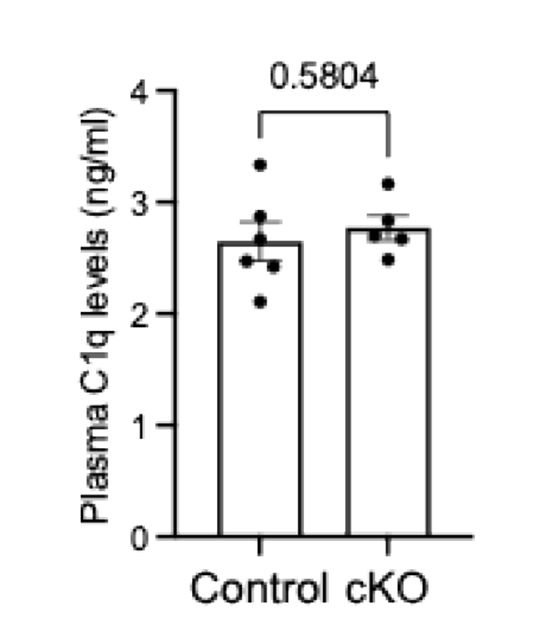FineTest ELISA kit contributes to the research on Alzheimer's cognitive impairment. The immunoassay is designed to measure C1qa level in plasma.
Article Title: Microglial lipid phosphatase SHIP1 limits complement-mediated synaptic pruning in the healthy developing hippocampus
Journal Title: Immunity
DOI: 10.1016/j.immuni.2024.11.003
IF: 25.5
PMID: 39657671
Abstract: The gene inositol polyphosphate-5-phosphatase D (INPP5D), which encodes the lipid phosphatase SH2-containing inositol polyphosphate 5-phosphatase 1 (SHIP1), is associated with the risk of Alzheimer's disease (AD). How it influences microglial function and brain physiology is unclear. Here, we showed that SHIP1 was enriched in early stages of healthy brain development. By combining in vivo loss-of-function approaches and proteomics, we discovered that mice conditionally lacking microglial SHIP1 displayed increased complement and synapse loss in the early postnatal brain. SHIP1-deficient microglia showed altered transcriptional signatures and abnormal synaptic pruning that was dependent on the complement system. Mice exhibited cognitive defects in adulthood only when microglial SHIP1 was depleted early postnatally but not at later stages. Induced pluripotent stem cell (iPSC)-derived microglia lacking SHIP1 also showed increased engulfment of synaptic structures. These findings suggest that SHIP1 is essential for proper microglia-mediated synapse remodeling in the healthy developing brain. Disrupting this process has lasting behavioral effects and may be linked to vulnerability to neurodegeneration.
Keywords: AD risk genes, Alzheimer’s disease, INPP5D, SHIP1, Cognitive dysfunction, Complement, microglia, Synaptic pruning, Cognitive impairment
Immunoassay
| FineTest Product | Sample | Species | Detection Target |
| Mouse C1qa(Complement C1q subcomponent subunit A) ELISA Kit(EM0450) |
plasma | Mouse | C1qa |
Validated Image

Figure Source: Immunity. 2025 Jan 14;58(1):197-217.e13. doi: 10.1016/j.immuni.2024.11.003.
